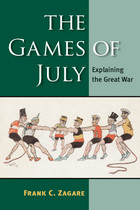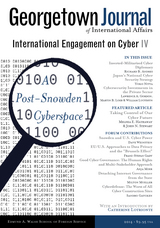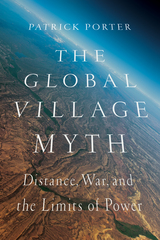13 start with G start with G

"Frank C. Zagare combines a deep command of historical scholarship and the sophisticated skills of an applied game theorist to develop and test a theory of why deterrence failed, catastrophically, in July 1914. . . . Zagare concludes with sage advice on how to avoid even more cataclysmic breakdowns in a nuclear world."
---Steven J. Brams, New York University
"Zagare's deft study of the origins of the First World War using his perfect deterrence theory uncovers new insights into that signal event and shows the value of formal theory applied to historical events. A must-read for those interested in security studies."
---James D. Morrow, University of Michigan
"Through an exemplary combination of formal theory, careful qualitative analysis, and lucid prose, The Games of July delivers important and interesting answers to key questions concerning the international political causes of World War I. Its well-formed narratives and its sustained engagement with leading works in IR and diplomatic history . . . make it a rewarding read for security scholars in general and a useful teaching tool for international security courses."
---Timothy W. Crawford, Boston College
Taking advantage of recent advances in game theory and the latest historiography, Frank C. Zagare offers a new, provocative interpretation of the events that led to the outbreak of World War I. He analyzes key events from Bismarck's surprising decision in 1879 to enter into a strategic alliance with Austria-Hungary to the escalation that culminated in a full-scale global war. Zagare concludes that, while the war was most certainly unintended, it was in no sense accidental or inevitable.
The Games of July serves not only as an analytical narrative but also as a work of theoretical assessment. Standard realist and liberal explanations of the Great War are evaluated along with a collection of game-theoretic models known as perfect deterrence theory.
Frank C. Zagare is UB Distinguished Professor of Political Science at the State University of New York at Buffalo.
Cover illustration: Satirical Italian postcard from World War I. Used with permission from The University of North Carolina at Chapel Hill Libraries.

In 2007 Georgetown University established the CyberProject under the auspices of the Institute for Law, Science & Global Security. The CyberProject seeks to hone the Institute’s resources to help policymakers develop a greater understanding of current international cybersecurity issues. On 10 April 2012, the Institute held its second annual international cyber conference entitled, “International Engagement on Cyber: Establishing International Norms & Improved Cyber Security.” Under the direction of the CyberProject and the Institute, we have devoted this second annual special issue of the Georgetown Journal of International Affairs to cyber exclusively, and the challenges that societies face as they seek to establish norms of behavior so all may coexist peacefully in this domain. In the pages that follow, participants from the Institute’s second international cyber conference and other leaders, domestic and foreign, lay out their visions for protecting cyberspace and maintaining its stability.
The Georgetown Journal of International Affairs is the official publication of the Edmund A. Walsh School of Foreign Service at Georgetown University. Each issue of the journal provides readers with a diverse array of timely, peer-reviewed content penned by top policymakers, business leaders, and academic luminaries. Annual peer reviewed ‘special editions’ feature collected academic analysis on rapidly changing domains within the arena of international affairs, including the International Engagement on Cyber series.

A great deal has transpired in the cyber realm during the past year. These events, particularly the Snowden Affair, have drastically shaped the debate over state power projection and its consequences. Global public discourse previously tended to center upon the Internet as a democratizing force, capable of weakening the control of the nation-state. The Internet transcended national borders and empowered the masses at the expense of traditional power blocks. However, this battle for the control of cyberspace is far from over. The nation-state is attempting to retrench its power in the digital realm, and the forces of centralization are appearing to gain strength in the struggle between diffusion and consolidation. This shift has raised serious questions regarding the responsibilities and limits of government cyber control. State Building on a New Frontier—the third edition of our annual International Engagement on Cyber series—attempts to explore some of these difficult themes. This edition also features articles that deal with the technical side of the cyber discussion, namely attempts to create appropriate standards for continuing infrastructure development.
The Georgetown Journal of International Affairs is the official publication of the Edmund A. Walsh School of Foreign Service at Georgetown University. Each issue of the journal provides readers with a diverse array of timely, peer-reviewed content penned by top policymakers, business leaders, and academic luminaries. Annual peer reviewed ‘special editions’ feature collected academic analysis on rapidly changing domains within the arena of international affairs, including the International Engagement on Cyber series.

Each spring, the Cyber Project at Georgetown University’s Institute for Law, Science, and Global Security convenes a conference of leading international experts from academia, the private sector, and government to address cutting-edge issues in cybersecurity.
This issue begins with a group of articles under the theme A Post-Snowden Cyberspace, describing how Edward Snowden’s revelations directly or indirectly changed the way the global community understands cybersecurity and cyber law. Other topics covered include cyber weapons, cyber deterrence, Japan’s cybersecurity strategy, data protection in the private sector, executive accountability for data breaches, minimum security standards for connected devices, and the problem of underinvestment in cybersecurity.
Please note, this special issue is not included in the subscription to the journal.
The Georgetown Journal of International Affairs is the official publication of the Edmund A. Walsh School of Foreign Service at Georgetown University. Each issue of the journal provides readers with a diverse array of timely, peer-reviewed content penned by top policymakers, business leaders, and academic luminaries.

This fifth edition in the International Engagement on Cyber series focuses on securing critical infrastructure. The centrality of critical infrastructure in the Obama administration’s recent cybersecurity initiatives demonstrates the timeliness of this topic for greater review and scholarly input. In this manner, articles in this issue uncover the role and extent of international law and norms, public-private cooperation, as well as novel ways of conceptualizing ‘security’ in efforts to improve critical infrastructure cybersecurity. Other pieces provide case studies on the telecommunications, power, and energy sectors to generate an in-depth understanding of specific responses to security concerns in different infrastructure areas.
Additional contributions examine regulatory activities in cyberspace, the potential value of cryptocurrency, the evolution of cloud computing, cybersecurity in Brazil, as well as the integration of cyber in the military strategies of Russia, China, and the United States. The diversity of these topics demonstrates the Journal’s continued commitment to pursuing the myriad facets that compromise the field of cyber.
Please note, this special issue is not included in the subscription to the journal.

The Georgetown Journal of International Affairs has once again partnered with the Cyber Project at Georgetown University’s Institute for Law, Science, and Global Security to publish the sixth special issue of International Engagement on Cyber. This special issue of the journal seeks to uncover timely topics, broaden dialogue, and advance knowledge within the field of cyber. The articles are written by an international group of leading scholars, practitioners, and policymakers. The Forum of this issue evaluates the US Department of Defense’s 2015 Cyber Strategy and its efficacy in meeting cyber threats. Other topics covered in this issue include applying Just War Theory to the cyber capabilities of non-state actors including ISIS and Anonymous, litigating competing perspectives on the establishment of cyber norms, assessing tensions on the Korean peninsula in the cyber domain, and much more.
The Georgetown Journal of International Affairs is the official publication of the Edmund A. Walsh School of Foreign Service at Georgetown University. The journal was founded to serve as an academic resource for scholars, business leaders, policy makers, and students of international relations, cultivating a dialogue accessible to those with all levels of knowledge about foreign affairs and international politics. Each issue of the journal provides readers with a diverse array of timely, peer-reviewed content that bridges the gap between the work done by news outlets and that done by traditional academic journals.


The Georgetown Journal of International Affairs is the official publication of the Edmund A. Walsh School of Foreign Service at Georgetown University. Each issue of the journal provides readers with a diverse array of timely, peer-reviewed content penned by top policymakers, business leaders, and academic luminaries.

A riveting introduction to the complex and evolving field of geospatial intelligence.
Although geospatial intelligence is a term of recent origin, its underpinnings have a long and interesting history. Geospatial Intelligence: Origins and Evolution shows how the current age of geospatial knowledge evolved from its ancient origins to become ubiquitous in daily life across the globe. Within that framework, the book weaves a tapestry of stories about the people, events, ideas, and technologies that affected the trajectory of what has become known as GEOINT.
Author Robert M. Clark explores the historical background and subsequent influence of fields such as geography, cartography, remote sensing, photogrammetry, geopolitics, geophysics, and geographic information systems on GEOINT. Although its modern use began in national security communities, Clark shows how GEOINT has rapidly extended its reach to other government agencies, NGOs, and corporations. This global explosion in the use of geospatial intelligence has far-reaching implications not only for the scientific, academic, and commercial communities but for a society increasingly reliant upon emerging technologies. Drones, the Internet of things, and cellular devices transform how we gather information and how others can collect that information, to our benefit or detriment.


According to security elites, revolutions in information, transport, and weapons technologies have shrunk the world, leaving the United States and its allies more vulnerable than ever to violent threats like terrorism or cyberwar. As a result, they practice responses driven by fear: theories of falling dominoes, hysteria in place of sober debate, and an embrace of preemptive war to tame a chaotic world.
Patrick Porter challenges these ideas. In The Global Village Myth, he disputes globalism's claims and the outcomes that so often waste blood and treasure in the pursuit of an unattainable "total" security. Porter reexamines the notion of the endangered global village by examining Al-Qaeda's global guerilla movement, military tensions in the Taiwan Strait, and drones and cyberwar, two technologies often used by globalists to support their views. His critique exposes the folly of disastrous wars and the loss of civil liberties resulting from the globalist enterprise. Showing that technology expands rather than shrinks strategic space, Porter offers an alternative outlook to lead policymakers toward more sensible responses—and a wiser, more sustainable grand strategy.

The optimism that arrived at the end of the cold war and marked the turn of the Millennium was shattered by September 11. In the aftermath of that event it is not unwarranted pessimism that lines the pages of Grave New World, it is unavoidable reality. Terrorism is but one aspect of many other wider concerns for national and international security, and the contributors to this volume not only warn us, but reward us as well with the clarity of their views into—and possible solutions for—a difficult, complicated future. They speak convincingly of the numerous military and non-military challenges that create security problems—whether those are interstate, intrastate, or transnational—many of which are being dangerously overlooked in public policy debates.
The challenges and complexities might seem insurmountable but the first step in solving problems is recognizing that they exist. Grave New World provides an eye-opening assessment of the prospects for peace and security in the 21st century.
Michael E. Brown frames these issues in his Introduction, "Security Challenges in the 21st Century;" and in his summation, "Security Problems and Security Policy in a Grave New World."

By combining these different analyses, Greenland in Arctic Security provides new, theoretically informed discussions on how security politics can manifest across different scales and territorial borders. At times, these politics can have consequences beyond their original intent. With Greenland geopolitics and securitization theory of current interest to political and academic debates, this book offers timely insights for readers.
READERS
Browse our collection.
PUBLISHERS
See BiblioVault's publisher services.
STUDENT SERVICES
Files for college accessibility offices.
UChicago Accessibility Resources
home | accessibility | search | about | contact us
BiblioVault ® 2001 - 2024
The University of Chicago Press









